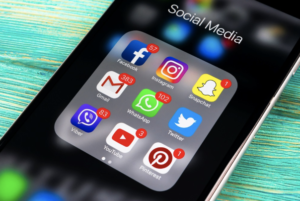
Photo courtesy City Press News
Picture perfect or perfect picture? Why do we take so many photos of ourselves?
The obsessive taking of photos has been described as seeking social status as well as shaking off depressive thoughts and, of course, capturing a memorable moment.
Photo editing apps and social media have caused college women to compare themselves to unrealistic beauty standards, and can even lead to body dysmorphic disorder (BDD). BDD is classified as a form of obsessive-compulsive disorder in which a person becomes excessively preoccupied with a perceived flaw in appearance.
Anassa Williams, a biology pre-medicine student from Fort Lauderdale, expressed her concerns about her insecurities.
“I believe in this generation social media is very popular, because they always alert us with the latest trends around the world. Social media has an influence on all women to the point where it is discouraging. Women need to know they are more than a Photoshop photo. Nowadays, women don’t want to work for a nice body because they see celebrities such as the Kardashians buying their body and fixing what they don’t like. You have everybody trying to be somebody else and no one wants to be themselves. It is very discouraging to me because I am petite, and every girl has a desire to have that Instagram model look,” she said.
Before Instagram and Twitter became a heavy influence on this generation, many people aspired to be like celebrities and models in magazines. Now, it is as easy to scroll on social sites for women to look for aspirations.
Janorris Hunter, a graduate student from Fort Myers majoring in history, explains his thoughts on Black women in college who are influenced by social media.
“Social media has become a thing where we talk about the intersexuality where social media is for Black women. We have somewhat capitalized on social media to benefit them in some type of way. The bad part about that is competition, bullying and body shaming. So much drama can come out of social media body-shaming such as colorism.
“A solution in moving forward is being aware and knowing your triggers because social media can trigger you in such ways as trauma and disrespect. You have to know how to disengage yourself. We have to know what’s the best benefit for us and what we can tolerate as a person,” he said.
Kenya Johnson, a once inspiring influencer, shares her experience with seeking to become Instagram famous.
“Most of us have something that we don’t like about our appearance such as our hips, a crooked smile, big nose, a flabby stomach, and the list goes on. I once had a desire to become an Instagram influencer. I found myself pretending to be someone that I’m not. I remembered my mom saw one of my pictures I posted on Instagram and said she did not realize it was me. From that point, I knew that this was not the career I should be going in,” she said.